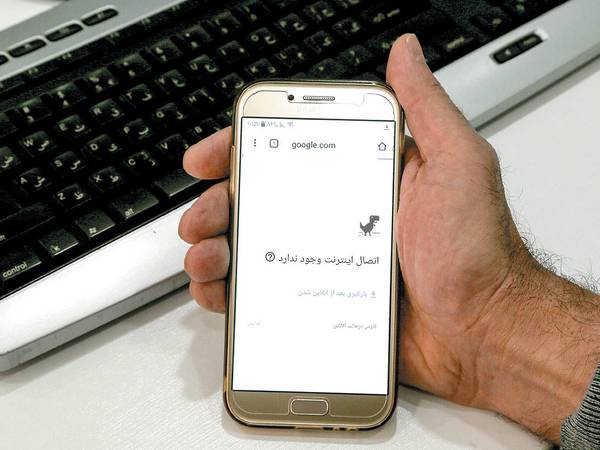The lifting of official bans from two social media platforms on Tuesday may do little to dull the ire of Iranians about persistent government restrictions on their internet access.
As internet restrictions and social media blackouts continue in Iran, in spite of promises from President Masoud Pezeshkian to lift them, even the restricted local media have called for the resignation of his communications minister.
Sattar Hashemi has become a popular scapegoat for Iran’s complex censorship system, even if the dossier is largely out of his hands and run by the country’s ruling clerics and the security establishment.
Sazandegi columnist Faezeh Momeni said that "Hashemi has not even started the process of lifting the filtering, four months after he got the parliament's vote of confidence as IT and Communication Minister.”
An open letter called on President Masoud Pezeshkian, who in his election campaign promised to lift restrictions, "to appoint a new minister who would be committed to put an end to filtering."
The Minister of Economy, Abdolnasser Hemmati, recently said that "80 percent of Iranians use internet blockage circumvention tools [VPNs] to overcome the filtering and that imposes a cost of two million rials per month (around $3) on every Internet user."
He also said that "filtering causes heavy losses for the economy by restricting people's livelihood,” but only said that filtering is likely to be lifted gradually to avoid risking damage to “infrastructure”.
However, Iranian lawyer Kambiz Nowruzi told Sazandegi that lifting internet restrictions requires no specific infrastructure. “The decision to lift filtering only requires the approval of a majority—half plus one—of the 12 members of a committee, six of whom are representatives of the Pezeshkian administration," he said.
“If Pezeshkian can secure the support of at least one of the two representatives from the parliament or one of the four representatives from security organizations, the filtering can be lifted.”
He said the current filtering is illegal as per the country’s constitution which guarantees the public’s right to access information.
"From a legal point of view, the President can lift the filtering, but political and administrative realities of the country do not allow him to do that,” Nowruzi added.
In this year’s Freedom House report on internet freedom, the rights watchdog ranked Iran third in the world’s least free countries on digital freedom.
“The regime has taken steps to make access to the global internet more cumbersome and expensive, and drive users to a domestic version of the internet where authorities can more effectively control content and monitor users,” its report said.
“The regime also employs extensive censorship, surveillance, content manipulation, and extralegal harassment against internet users, making Iran’s online environment one of the world’s most restrictive.”
Since the 2022 uprising, the government has instructed internet service providers to increase their prices as much as 40 percent, making access significantly more expensive while localized internet shutdowns have continued.
In February, the Supreme Council for Cyberspace prohibited the use of unlicensed virtual private networks (VPNs) and pushed users seeking to access blocked or filtered web content to use domestic circumvention tools.
Internet expert Saeed Souzangar told Sazandegi newspaper that "using VPNs imposes a heavy burden on the backbone of the country's Internet system by increasing the volume of data transfers across the network."
It also diverts vast amounts of revenue to foreign companies such as Elon Musk’s Starlink. The website wrote, "There are at least 20,000 Starlink terminals in Iran and every one of them is paying at least $100 to Starlink, which adds up to $2 million per month."
Speaking about the mounting pressure on the minister of communications, Akbar Montajabi, the editor-in-chief of Sazandegi, told Rouydad24, ”The minister fears reaction by hardliners."
He said the minister is "an inefficient man who does not understand the requirements of modern living,” with millions of Iranians depending on the internet for commercial purposes.
